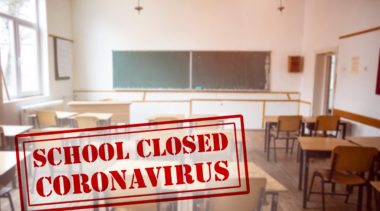Satya Marar is a Washington DC-based lawyer, economist, and antitrust policy fellow at the Mercatus Center at George Mason University. He writes on a range of topics, including tech policy, competition law, economics, trade, tax, and foreign affairs.
Marar was previously a policy analyst at Reason Foundation.
-
How America subsidizes medicine across the world
The U.S. healthcare market subsidizes much of the world’s cutting-edge medical innovations, including pharmaceutical developments.
-
What the U.S. Can Learn From Australia On School Choice
America needs to move toward an education system that gives parents and students choices and funds students directly.
-
Three Things Policymakers Can Do to Improve School Finance Systems Right Now
There are practical and prudent steps policymakers can take to help schools support kids in the coming school year.
-
As Schools and Families Deal With COVID-19, California Needs to Let Education Funding Follow Kids to Their Schools
California is generously funding schools that lost students, while short-changing schools that are better serving families during the coronavirus pandemic.
-
Hybrid Schools Can Help Us Reimagine the Education System
Hybrid-homeschooling and micro-schooling offer flexible and effective education models that are right for many families and kids.
-
School Finance Policy in Wyoming Promotes Equity Between Districts
Wyoming’s equitable and effective pooling of resources between wealthier and less wealthy districts makes the state a good model for others to study.
-
Why the School Choice Victory at the Supreme Court Is So Important
The decision has the potential to neutralize “Blaine Amendments” found in more than 30 state constitutions that restrict the participation in publicly funded education choice programs.
-
Vermont’s School Funding Model Promotes Equity Across School Districts
Vermont abolished the education portion of local property taxes entirely, opting for a statewide property tax to fund schools more evenly.
-
Best Practices For Identifying Student Poverty
Some states and schools are seeking better measures to identify and help economically disadvantaged students.
-
Schools and States Need a More Accurate Measure of Student Poverty
The increased use of federal government initiatives by schools will result in a widening disparity between the allocation of resources and the actual student-needs the resources are intended to address.
-
Examining How States and School Districts Allocate Funding for Poverty Concentration
Funding based on poverty concentration within a school district, rather than an individual student's economic disadvantages, has significant trade-offs that must be considered by policymakers.
-
Coronavirus Pandemic and Economic Downturn Could Force Education Finance Systems to Change
The coronavirus pandemic and financial crisis may force America’s outdated school finance system to implement reforms that reduce inequities and make the most of what taxpayers spend.
-
WHO’s Failures Should Be Part of the Conversation About Its Funding
The World Health Organization's actions have continually undermined many of the global public health objectives it claims to support.
-
Fighting Misinformation About Vaping During the Coronavirus Pandemic
Vaping is a much safer alternative to smoking, even during a pandemic.
-
Hawaii’s Successful Experience With Weighted-Student Formula Has Improved Funding Equity
The weighted-student formula has provided a much more equitable, responsive and transparent way to fund Hawaiian schools.
-
Bill Expanding School Choice in Florida Is a Big Win for Florida’s Students and Families
The greatest accountability measure for any school is that parents and kids can “vote with their feet” by taking all their scholarship dollars to another school if they’re dissatisfied.
-
Rep. Frank Pallone’s Anti-Vaping Bill Would Be a Win for Cigarettes
The legislation would decimate small businesses in the vaping space—to the benefit of the cigarette industry.
-
For Real School Choice in Arkansas, the State’s Open Enrollment Policy Needs Reforming
An arbitrary cap on how many inter-district transfers a school district can allow in a year is holding back Arkansas' open enrollment policy.


















